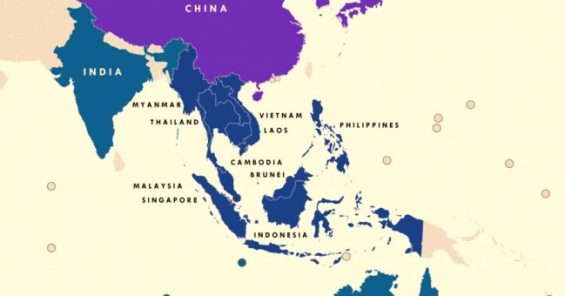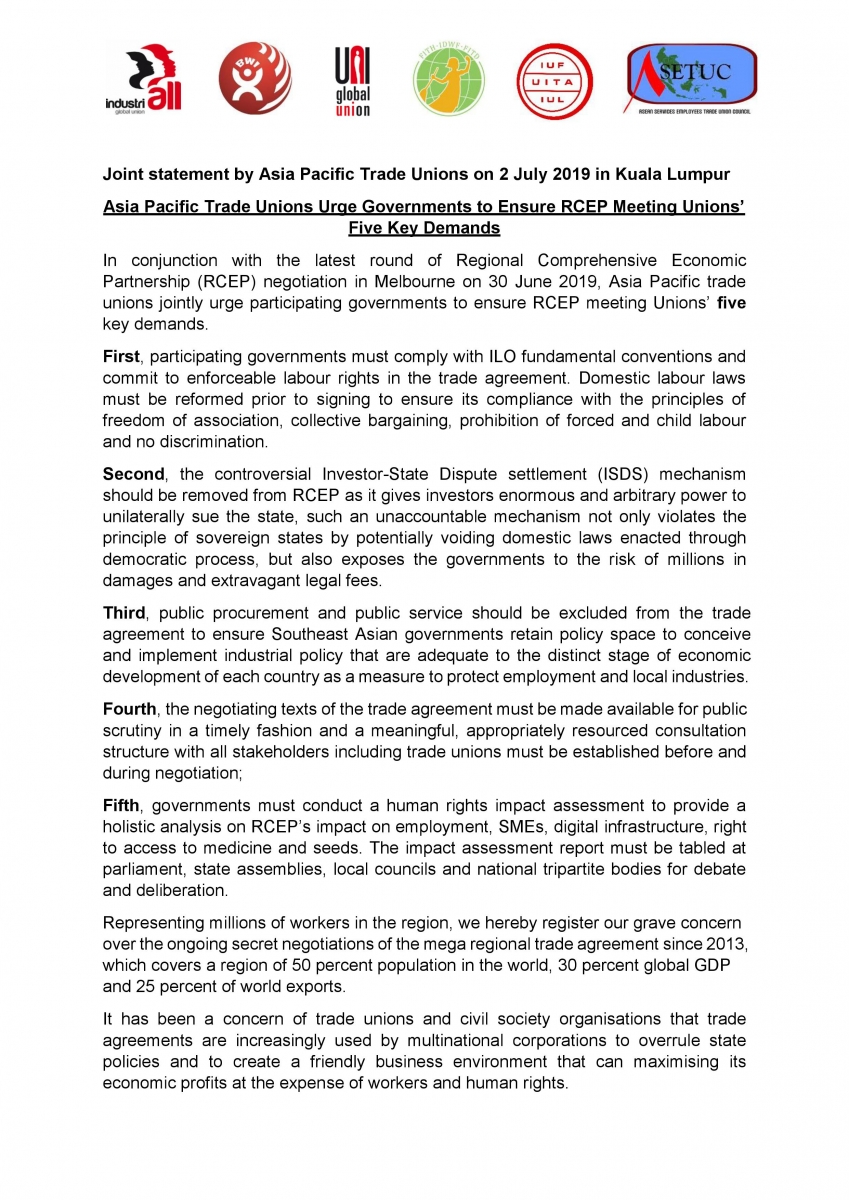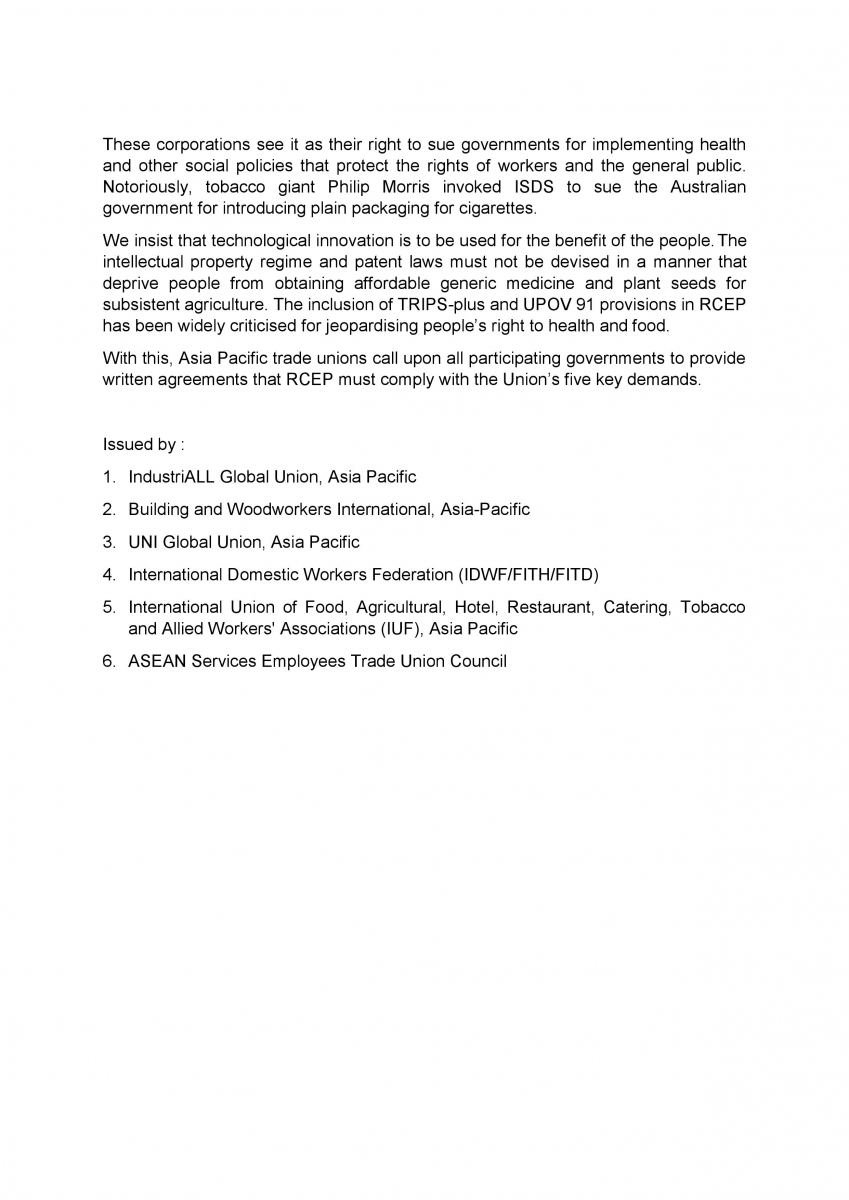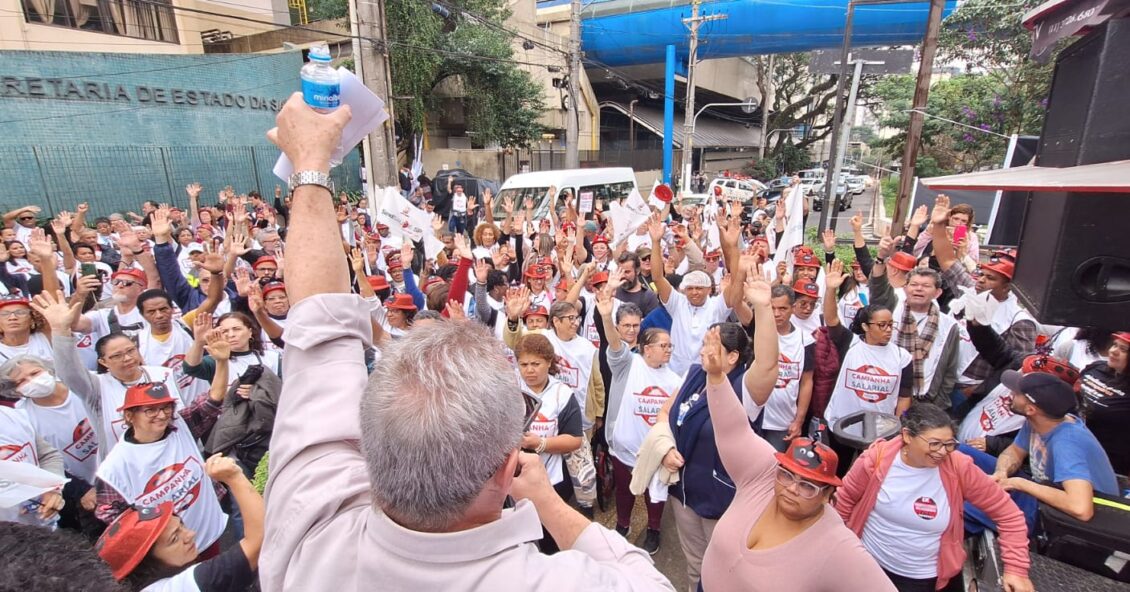The Regional Comprehensive Economic Partnership (RCEP) was initially conceptualized by Indonesia to further entrench the ‘centrality’ of the ASEAN bloc in the wider Asia-Pacific regional architecture. However, concerns over China’s dynamism in the global arena shifted the narrative about the RCEP as a competing regional response to the US-led Trans-Pacific Partnership. The TPP eventually floundered due to the US’s domestic politics and the pact was barely resurrected in the form of a Comprehensive and Progressive Agreement for Trans-Pacific Partnership (CPTPP). More recently the trade conflict between the US and China has accentuated anxieties among many leaders in the region, and serves as a catalyst for the negotiating countries to conclude the RCEP by 2019.
Trade unions recognised the implications from the resultant geopolitical shift that the RCEP would bring to the region. However, the constant shroud of secrecy over the negotiations since it started in 2013 has fuelled concerns over the pact’s potential negative impact on workers’ and people’s rights as well as sustainable development and democracy. Unlike the original TPP, the RCEP’s publicised scope lacked chapters on key concerns over the environment and labour.
UNI Apro is of the view that such pacts lacking strong labour and social dimensions will only benefit multi-national corporations, deepen inequalities, and fuel the race to the bottom. One way to mitigate these potential ill impacts is to adopt the ASETUC strategic approach to institutionalising labour’s voice in the ASEAN integration process to similarly socialise the RCEP.
The ASEAN integration process has taken nearly two decades and is still evolving. The process has given rise to various opportunities for trade unions engagement. Through these openings, UNI Apro together with BWI AP and PSI AP formed the ASEAN Services Trade Union Council (ASETUC) in 2007 to serve as the mechanism to dialogue with ASEAN governments and employers. After a decade of persistent engagement, ASETUC is now a dialogue partner to the ASEAN Intergovernmental Commission on Human Rights and the annual ASETUC tripartite social dialogue has been included in the 2016-2020 Workplan of the ASEAN Senior Labour Officials Meeting (SLOM).
Trade unions need to create such pathways in the RCEP process and utilise them to raise the multi-faceted social and economic risks and opportunities of trade and services liberalization. It is with this hope that together with other regional unions as part of the Unions for Trade Justice Network in the Asia Pacific region, we are calling on the governments taking part in the RCEP negotiations now in Australia to take heed of our demands:




